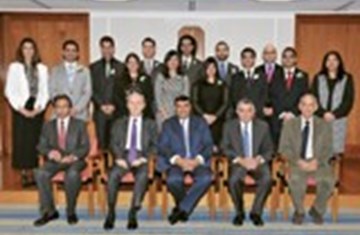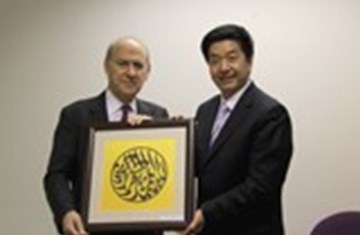New Publication Examines Early Tayyibi-Musta‘li History in Egypt and Yemen
The 'Uyun al-akhbar is the most complete text written by an Ismaili author on the history of the Ismaili community from its origins up to the 12th century CE. The seventh volume, edited here for the first time, together with an English summary, deals in particular with the period of the Fatimid caliphs al-Mustansir (d. 487/1094), the time of Musta‘lian rulers including al-Musta‘li (d. 495/1101) and al-Amir (d. 524/1130), and then the Tayyibi Ismaili community in Yemen.
The author, Idris ‘Imad al-Din (d. 1468), who was himself a leader of the Tayyibis, took a special interest in the commencement of the Ismaili movement in Yemen, the separation of the dynasty into two communities following the death of al-Mustansir in 1094, and the final rupture with Egypt after the murder of al-Amir in 1130. A substantial portion of this volume is also devoted to the history of the later Ismailis in Yemen, and the pivitol role of al-Sayyida al-Hurra, the famous Sulayhid queen and only female hujja, in establishing the Tayyibi Ismaili community, independent of the Fatimids in Egypt.
The Musta‘li community based in Egypt and Yemen was further divided, soon after 524/1130, when their Caliph-Imam al-Amir bi-Ahkam Allah was murdered and the Yemeni Ismailis refused to accept as his successor to the imamat al-Hafiz ‘Abd al-Majid, who became the Fatimid caliph. The da‘wa in Yemen continued now on behalf of al-Amir’s son, al-Tayyib, who was thought to be in hiding. The Sulayhid queen and ruler of Yemen at this time was al-Malika al-Sayyida al-Hurra (d. 532/1138), who separated the leadership of the da‘wa and the Sulayhid state, and appointed the da‘i al-Dhu’ayb b. Musa al-Wadi‘i as the first da‘i mutlaq both to lead the da‘wa on behalf of the hidden Imam and to assume custody of the literature of the earlier Fatimid Ismaili da‘wa. Subsequent political upheavals brought about the end of al-Malika al-Sayyida’s rule, followed by her death in the year 532/1138 and the concealment of the Fatimid literary legacy by the da‘i mutlaqs of succeeding generations. In the 9th/15th century, the da‘i Idris ‘Imad al-Din rose to the position of the 19th da‘i mutlaq of the Tayyibi da‘wa in Yemen and thereby gained access to these sources, which he began to use in composing a variety of important historical works.
The seventh volume of the ‘Uyun al-akhbar is considered a unique source for the investigation of the religious character of the Sulayhid dynasty in Yemen. The position of the author as the 19th da‘i mutlaq of the Tayyibi da‘wa in Yemen and the extraordinary sources and documents that he had access to, make his book the principal source for the study of the Yemeni da‘wa.










